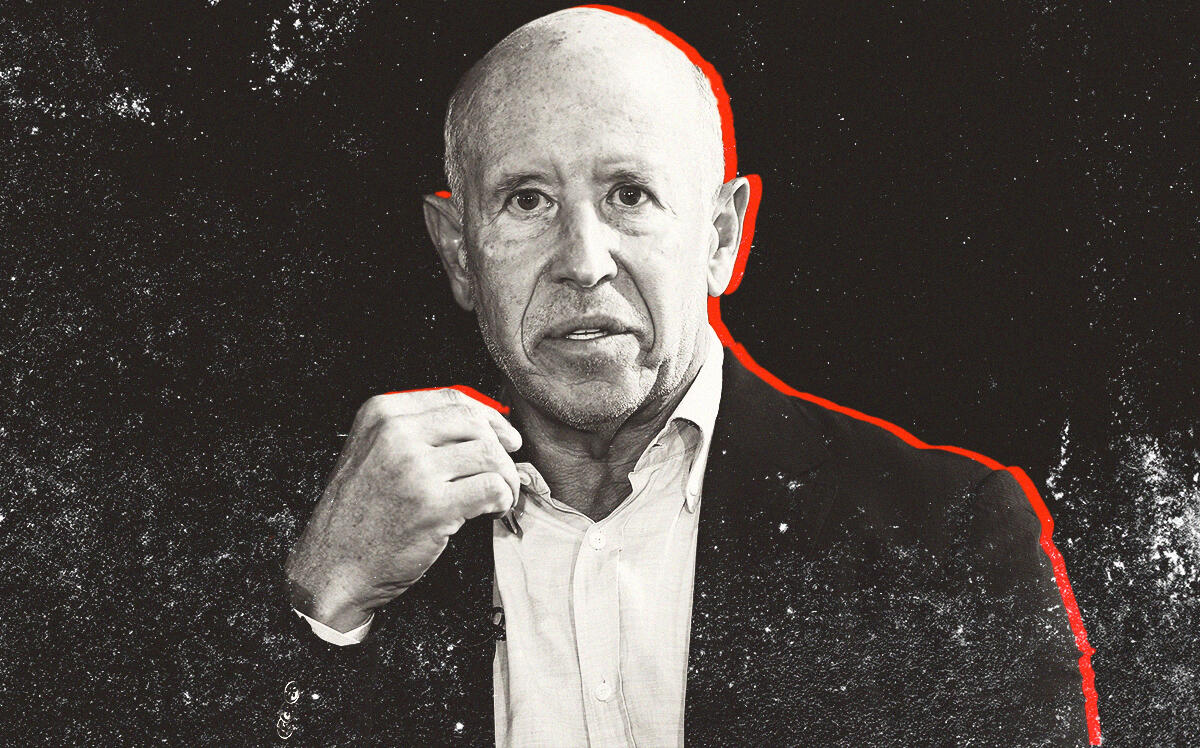Barry Sternlicht again praised Starwood Property Trust’s balance sheet and market position during its earnings call Wednesday as the real estate investment trust reported a fourth-quarter profit of $140 million.
Sternlicht, the billionaire founder and CEO of Greenwich- and Miami Beach–based Starwood, was critical of the Federal Reserve, bemoaning the high interest rates triggered by the Fed’s quest to reduce inflation to 2 percent.
“The Wizard of Oz couldn’t do that. I’m not even sure the Lord himself could actually make that happen,” Sternlicht said, though he added that 3 percent is feasible. “[Federal Reserve Chair] Jerome Powell better be the Lord because we’re going to need him and his team to actually do something that I think is virtually impossible.”
Starwood’s $140 million in fourth-quarter earnings, or 44 cents per share, were 53 percent higher than in the same period last year. The REIT reported $454.6 million in revenue, up 57 percent. Its stock was trading marginally higher Wednesday afternoon but has lost 17 percent of its value in the past year as the Fed has tried to tame inflation.
On the call, Sternlicht offered his take on each market sector. Multifamily, he said, is “solid as a rock.” The industrial market is “bifurcated again” and the U.S. office market is “the toughest” because of remote work.
“If you look at Asia, the Middle East, Korea, Japan, Australia, people have gone back to the office,” Sternlicht said. “It is a U.S. phenomenon probably led by the tech sector, which has created this unusual situation.”
He noted that office properties represent just 13 percent of Starwood’s assets and that Starwood has “almost no exposure” in New York and San Francisco, where office has been especially struggling.
At one point, Sternlicht claimed that it’s been “easier” for employers to fire people who aren’t in the office. “You obviously don’t see them; you’re not attached to them.”
Still, he pointed to better-performing office markets in red states, such as Texas (although many red-state cities are blue), and the dichotomy between Class A buildings and the rest.
“There’s very good demand for high-quality assets. And there’s no demand at all for other assets,” he said.
Hotels, he said, “have been incredibly strong” with high average daily rates and a smaller workforce.
“So the margins are really good. And your service is probably not as good as it was,” he said. “You should bring your own sheets to a hotel today, because we’re not going to change them for you.”
Yet lenders are avoiding hotels, Sternlicht said, creating an opening for Starwood. “The debt markets are a mess,” he said.
Rina Paniry, the firm’s chief financial officer, said Starwood downgraded four office loans totaling $724 million and a $42 million retail loan.
The office loans back properties in Brooklyn, Orange County, Houston and Washington, D.C. The Washington property could be converted to residential, and Starwood is looking to sell the Orange County and Houston buildings.
In December, Starwood acquired the Broadway Trade Center in downtown L.A. through a public foreclosure auction, and is considering converting it to a non-office property or selling.
Starwood’s special servicer handles about $109 billion worth of CMBS loans, up from $68 billion four years ago, Jeff DiModica, president of Starwood, said, noting that potential “significant earnings” for the company if volatility continues into 2024 and beyond.
“It’s nice to have this special servicer, the largest in the country, that will continue to perform and is a hell of a hedge against everything else going on in the world,” Sternlicht said. “The worse it gets, the better their life will be and the more they’ll earn.”
But he said if things get too good for the special servicer, that would not bode well for Starwood’s loan portfolio.
Read more



